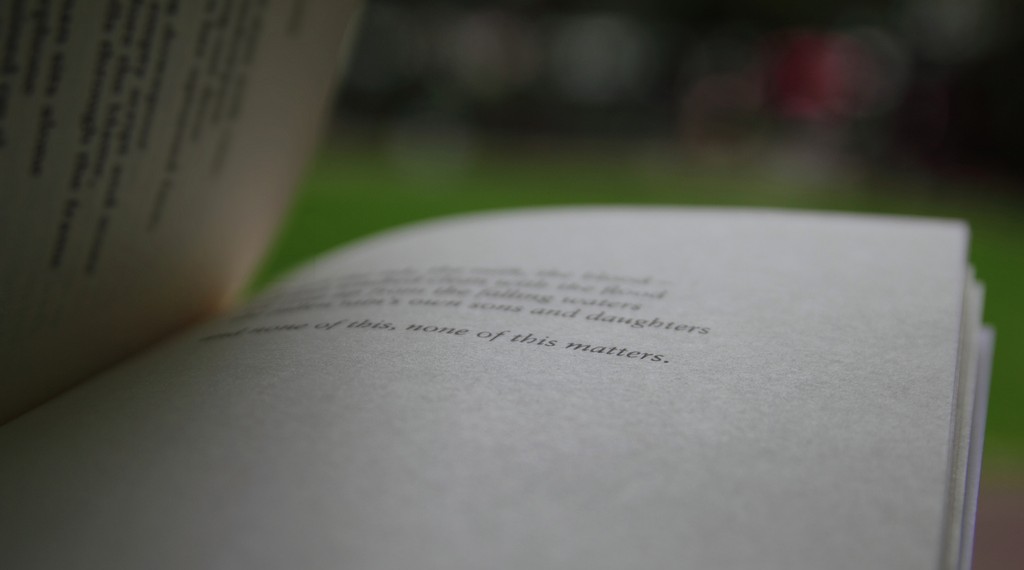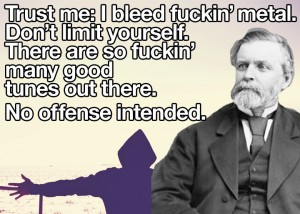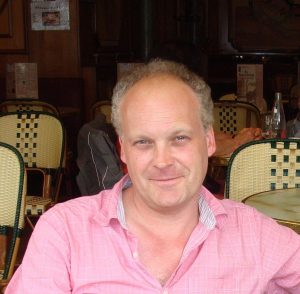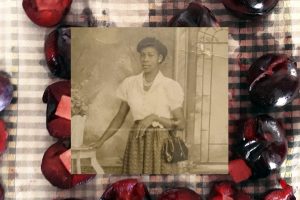
A word in your ear: An Interview with Don Paterson
by Memphis Barker, Nanette O’Brien | March 16, 2015
Don Paterson has written some of the most brilliant poems of the past twenty years, so it is with a deal of persistence that I edge the dictaphone closer and closer to him across the table. He speaks very quietly, and these are not cheap words. Winner of the 2009 Forward Poetry Prize for his latest collection, Rain, and widely regarded as at the forefront of contemporary poetry, there is a force and precision to his conversation that might be intimidating if untempered by his warm Scottish humour. Flabby phrasing is not suffered. We suggested he might channel a different energy into his music (he is an accomplished jazz guitarist) than into his writing; he replied simply: “I don’t ‘channel’ any energy into anything.” However, his concern for linguistic accuracy is more wry than pedantic, prompting a reshaping of thought rather than simply a technical adjustment. On many levels, he undercuts the sentimental image of poets as a refined breed, noses high in the air, detached from the grit of existence. It’s certainly comforting that he can profess himself “inseparable” from his iPhone or admit that he “loves” his Xbox. “I see a lot of parallels between gaming and poetry.” When pressed on what games he plays he adds: “I’m enjoying Red Dead Redemption a lot at the moment, but I can’t stand its sexism.” We met in the lounge of the Bloomsbury Hotel in London, far from his home in Kirremuir near Dundee, ostensibly to discuss the release of his new book Reading Shakespeare’s Sonnets, but inevitably venturing some distance into what he terms the “dark art” of poetry in general.
The ISIS: You’ve attracted a lot of attention in the press for putting Shakespeare’s homosexuality to the forefront of a reading of the sonnets. What draws you to such a biographical approach?
Don Paterson: It’s fine. I think all readings are legitimate and within that you can have stupid readings and you can have smart readings. Any approach is legitimate, but what’s wrong is for any one approach to dominate it, so if you took a New Historicism approach to the sonnets, well that’s problematic, but if you do them all in the end you get a nice rounded picture. Auden’s line was it’s idiotic to speculate on the dramatis personae, but you know we should be the judge of what’s interesting and not, and if I want to speculate on who these people were, I’m entitled to do it, as long as that’s not all I do. And of course that’s the problem with the sonnets, they generate so much rumour and gossip, that it tends to drown the poems. So I don’t have a problem with speculation. Though I find speculation about the Dark Lady pointless because she’s a cipher, she’s a cipher of his sodomy.
The ISIS: What about your own poetry, do you ever consciously create a new persona in your writing?
DP: No, because again I don’t think you can consciously create a persona, so much as self-consciously create a persona, and I think self-consciousness is the enemy whenever you’re writing. That’s not to say that a poem won’t have a persona, I just wouldn’t call it that. It’s important to have a consistent voice, and sometimes I might use a rhetorical strategy that involves taking another persona that you might not think of as your voice. But the truth is you put this subject of ‘your voice’ under any sensible interrogation and you come up empty handed. It turns out you really don’t have a voice, or at least it’s infinitely malleable, reprogrammable. The only important thing is that a poem’s voice is consistent within itself.
The ISIS: Do readers of poetry need to be trained to be interactive? Do you think there is such a thing as a ‘poetry muscle’?
DP: I think that’s true, I think if you just learn how to read it you get a taste for it. But the rules are different from other kinds of reading. And if you don’t know what they are, then you’re going to have a problem. Because if you don’t know it’s supposed to be interactive and you’re supposed to bring yourself to this thing, and you’re supposed to read in and the whole thing is predicated on you reading in, then you’re going to struggle.
I think all a poem is, is a form of words that invites someone to read into this. That’s it. And it’s predicated on re-reading, at first pass you’re just trying to understand what the poem is about, second pass looking for evocations of detail brought up to the level of the symbol. And that’s a pretty unique pleasure, only poetry does that. You’ve got to learn that, and you’ve got to get a taste for it.
The ISIS: Is there anything in the idea that the poet should be an ascetic, that he should withdraw from the distractions of the world to cultivate artistic sensitivity?
DP: It’s down to individual temperament. Things like art practice are really supposed to be tailored to individual temperament, so you don’t recommend a method of working. I don’t work well in solitude: I’ve tried these things where you book a couple of days and you have a lovely view, they’ve got a palm tree, you’ve sharpened all your pencils, and in the end you just sit there, drinking. Awful. Other days, you can push through the cracks, you get a bit done in the bus, you get a bit done on the train, that’s much better for me.
The ISIS: You suggested in your essay ‘The Dark Art of Poetry’ that poetry has “the power to make readers think or live differently.” Have any poems ever changed the way you live?
DP: Oh God, for one I don’t know if I could tell you, one’s reading is intensely private, or at least it has been if it’s really directed your own life. It’s something actually you might not want to think about. There’s a story I always tell – and it wasn’t meant as a compliment at all – about a woman that came up to me after a reading with her husband and said “we just want to thank you for a poem you wrote once; we read it to each other while we were courting.” “What was the poem?” I said. “Ah no, it’s ok, I just wanted to thank you that’s all.” But I insisted, “Oh no, you must tell me,” and she was starting to get a little bit rattled: “No, it’s fine, I just wanted to say, …” and I’m like any other poet going “No! Tell me!” and she snapped at me and said “It’s none of your business!” And I thought, yes, actually, yes you’re right, it is none of my business, because it was her poem. I’ve got my poems of Rilke and some others that I guess are just mine, and I want to keep it that way.
The ISIS: Some commentators peddle the idea of poetry’s “therapeutic” power. What about the opposite, can poetry be bad for you?
DP: Well yeah, I think so, I mean I like sharing the pain. I think we should all suffer together, frankly. Hopefully, and I think the rule is, we’re all the same; there’s a certain reciprocity between your experience as you’re writing the poem and the reader’s experience when they read it. I think very often it’s virtually the same, if the poem’s any good. And if it was painful to write, then the reader will be pained, or if assuaging to write, or moving, then hopefully that will also be reflected in the reader’s experience. I think it’s dead simple, but it’s predicated on the assumption that we all think the same shit, but here’s some shit that you might not have thought of yet.
The ISIS: We’d like to ask you about your music, do you take pleasure in music as a wordless medium, as a way of getting away from poetry?
DP: Not really, it’s just another can of worms, it’s an alternative headache. I enjoy the fact you don’t have to worry about denotation in music. I’m obsessed by what things denote, but music is pure connotation, all it deals in is the ineffable. Its medium of transmission is really primary, it’s dead basic, just air and vibration and silence; whereas poetry’s medium of transmission is really problematic. It relies on language; it’s a meta-art, as opposed to a pure art like music.
The ISIS: Do you feel that there are any words that come with too much baggage to be used in poetry?
DP: I think most of it’s up for grabs. There are some words in the bad list. You can’t use “shard”, “myriad” and recently banned was “marram grass”, interestingly. Yes, no more poems with “marram grass”. That will have to stop.
The ISIS: There goes my first three poems. A quick question on your teaching of poetry: you say that a good apprentice poet learns to differentiate between what you call the “red, wild creative eye” and the “blue cold editorial eye.” Are you able to teach this?
DP: I think there’s a great difference. People need to learn to have patience with the language. Most people can write a pretty good line, but a really good line can start with a tiny gesture or small shift in language or shift, that takes time. Big revisions are necessary in the beginning, larger seismic shifts, but I always think that publication is the point of being finished, and if you don’t have that in mind, that idea of public art, the whole relationship is incorrectly configured from the start. As you start to anticipate that condition and somebody else’s eye on it, then that really helps you write your best lines. You have to read it as someone else’s poem.
The ISIS: As we go, do you have any advice that would be useful for aspiring poets?
DP: No, I don’t, but I do have a word of advice. It’s something like: if you write poetry, it’s your own damn fault.




